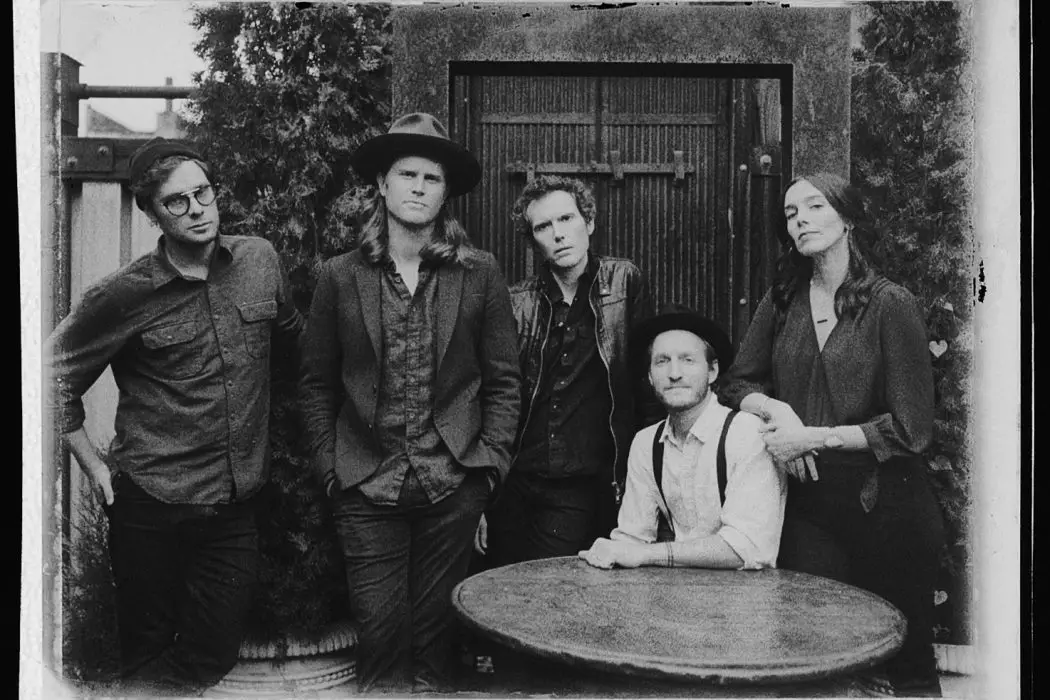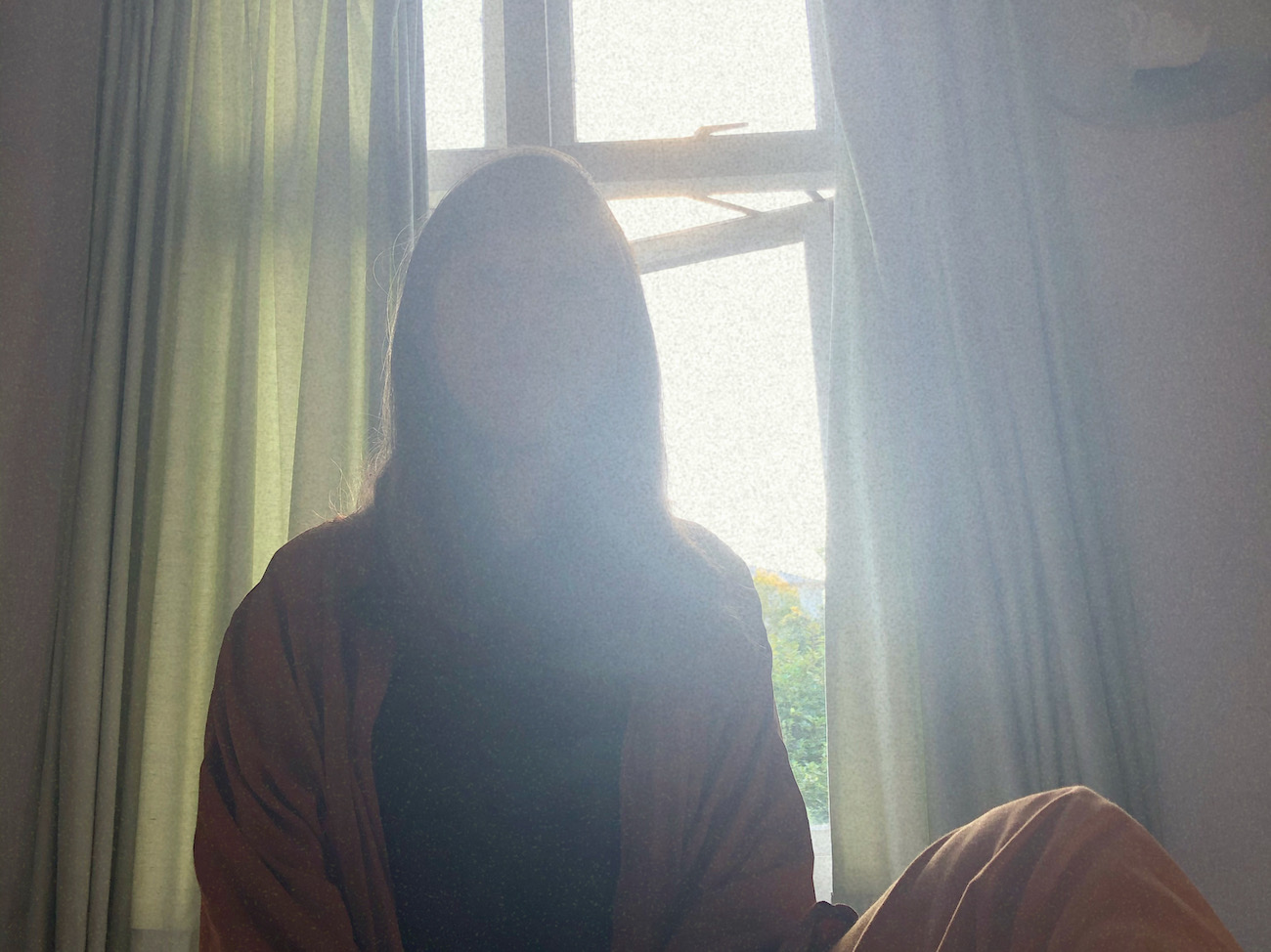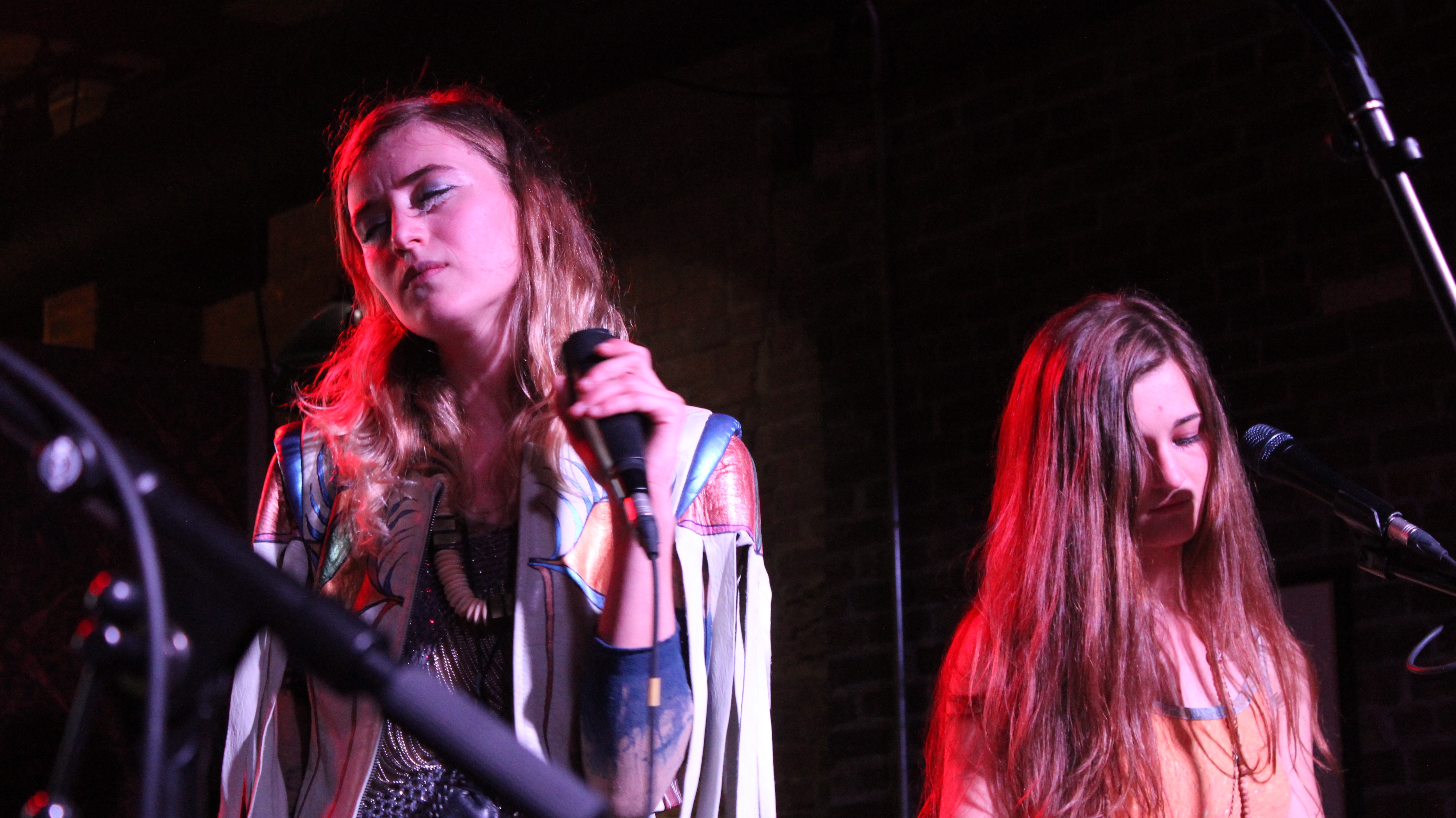The Lumineers’ Wesley Schultz discusses everything from addiction, family, and the band’s new album ‘III’, to storytelling through song, the value of vulnerability in music, and how Bob Dylan really changed the game.
Stream: ‘III’ – The Lumineers
I think that vulnerability is exactly what sets every human being apart from one another.
Together for well over a decade and with hit songs such as “Ho Hey,” “Stubborn Love,” “Cleopatra,” and “Ophelia” under their belt, The Lumineers need no formal introduction. The band founded in New Jersey by Wesley Schultz (lead vocals, guitar) and Jeremiah Fraites (drums, percussion, piano) have brought their gritty, homegrown folk rock sound around the world and back again, gaining initial fame with 2012’s self-titled debut album before reaching No. 1 on the US Billboard 200 chart with 2016’s acclaimed sophomore record, Cleopatra.
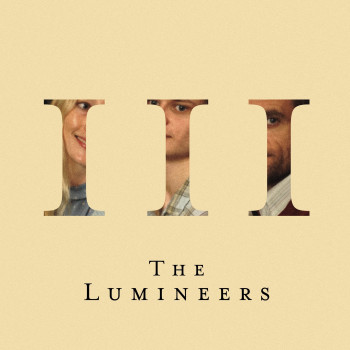
September 2019 saw the release of The Lumineers’ highly anticipated third album, simply entitled III. Previously described by Atwood Magazine as, “as much of a cinematic masterpiece as it is a masterpiece of an album,” III and its accompany film (divided into three chapters and ten music videos) find Schultz and Fraites exploring addiction and its impact on an individual, their family, and multiple generations.
The Lumineers are at their peak telling powerfully affecting stories with intimate, meaningful themes. Songs like “Gloria,” “Leader of the Landslide,” “My Cell,” and “It Wasn’t Easy to Be Happy for You” find them broaching difficult and complex subjects with respect, care, and grace. Schultz and Fraites balance the personal with the universal, bringing to life a relatable, moving story – in this case, that of the fictional Sparks family – that comes from, and speaks to the heart.
“Leader of the Landslide,” I think, really paints a picture of the nature of being around an addict, and then what that person is experiencing.
The Lumineers’ Wesley Schultz recently dove deep into the weeds with Atwood Magazine, discussing everything from addiction, family, and the band’s new album, to storytelling through song, the value of vulnerability in music, and how Bob Dylan really changed the game for everyone who came after.
Dive into one of today’s premier folk rock acts in our sweeping, raw, and unplugged interview – and don’t miss The Lumineers on tour this spring and summer!
This new album has a little more of a darkness to it, like a hue or a coloring of darkness – and I think also putting these music videos to the music, and having a film around it, has better told these stories.
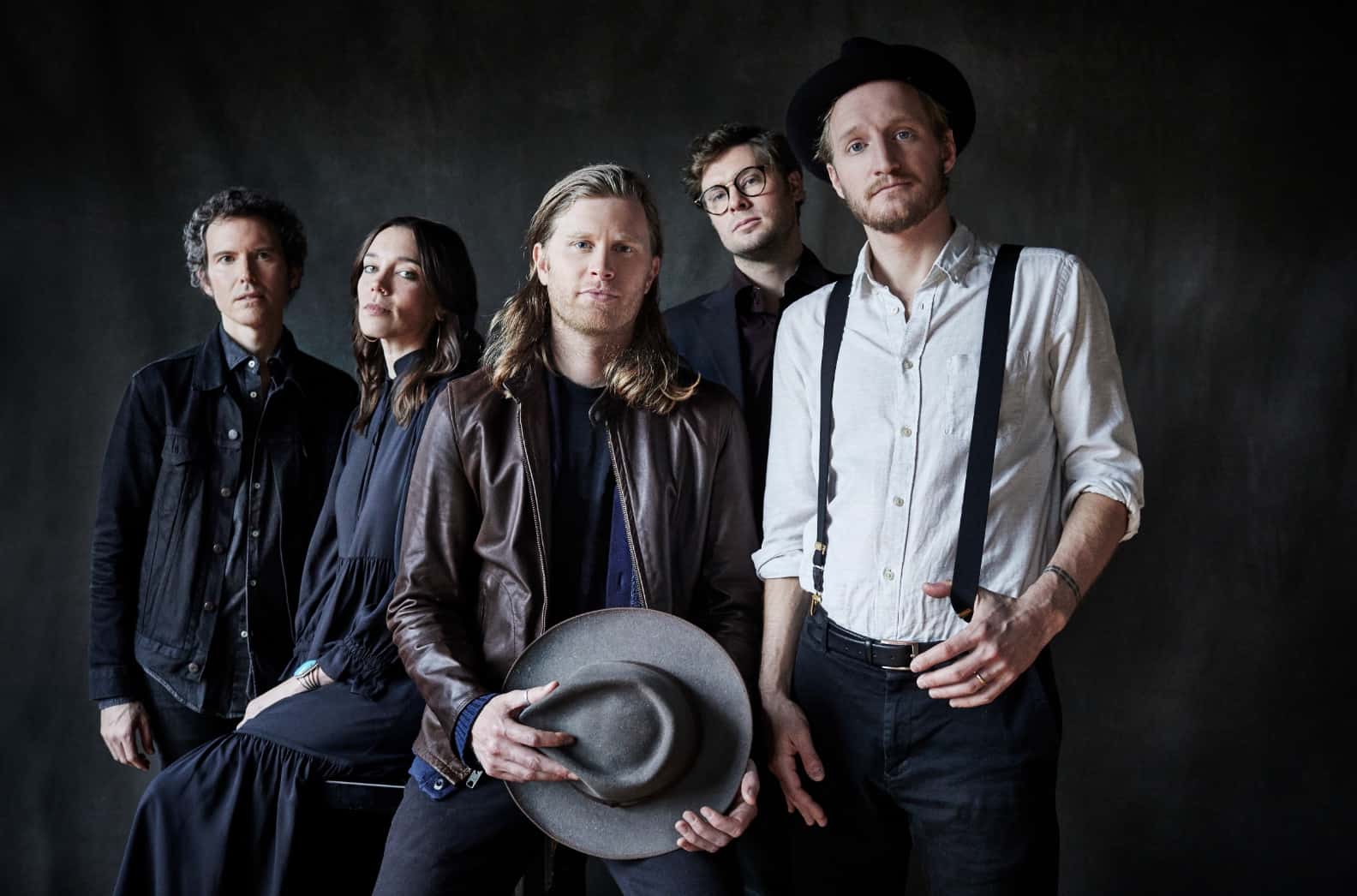
A CONVERSATION WITH THE LUMINEERS
Atwood Magazine: The Lumineers have been one of my favorite bands pretty much since the very beginning, when I would listen to “Flowers in Your Hair” on repeat until I learned how to play it myself. So many of your contemporaries have come and gone, but you soldier on; to what do you owe The Lumineers’ staying power?
Wesley Schultz: If I knew that, I would just do that over and over! It seems like it takes us a long time to write the simplest of songs, so maybe it’s the fact that a lot of the songs that we released, we’ve lived with for a little while – the snippets and the ideas. If you look at this most recent album, the intro to “Jimmy Sparks” was written in 2007 or ’08, and we were working on that melody in the same year before it got shelved. “Salt and the Sea” has a piano riff in it that was from the same time period.
I think we tend to hold onto ideas and maybe use them down the road when we feel like we have a complete song – but part of it is just trying to write something that, as we work on it, we don’t seem to tire of; you know, we sort of enjoy it more and more. Trying to trust that gut instinct, as we’ve gotten onto our third album, I think it gets easier to trust that more – when you can feel, from playing so many shows, that a lot of those ideas still feel really good to us. So, I think something to the effect of just having a gut instinct about it, or having a bloodhound’s nose for what feels like a timeless idea.
Are you the sentimental type? What is your relationship like with your older songs, like “Dead Sea,” “Ho Hey” and “Stubborn Love”?
Schultz: We play those three almost every night! I think they’re very different. We usually close the show with “Stubborn Love” – it’s become this anthem that really feels like a proper way to end the set. “Ho Hey” feels almost like a cover to us now; we used to play a lot of bars, and it almost feels like someone else wrote it because it became kind of omnipresent for a year or two. Now it feels like it’s everyone else’s song. and you’re just a part of that. And then “Dead Sea” is probably one of the only love songs we’ve ever written; I just love playing that song.
We were just in Paris last night – my wife and I got engaged there, seven years ago almost to the day. So we were there again, and had I written that song for her on Valentine’s Day one year, and I hid it in a box of chocolates because she said she hated when people gave people boxes of chocolates. So as a joke, I sort of cut out the shape, and put it in there, and sent it to her (we were living long distance at the time). She didn’t even bother to open it, she was so frustrated with my gift! And then I made her go back, drive home, and open it – because she had left for work, and then she had the lyrics and she listened to the song. So for me, that’s a proper love song that I really love, because the word “dead” being in the title doesn’t sound like it would be a love song or a happy song.
Listening to a track like “Big Parade” and knowing what you’ve made since, the song feels so light and full of possibility – whereas your latest material seems far more substantial and in-depth. Would you agree with this statement, that you’ve grown to inject more substance into your music over time?
Schultz: I mean, I think it’s more the vibe of the music – you know, the chord progressions and the melodies, even the way we recorded it on album “one” was pretty innocent; it was meant to be sounding like a demo. We had listened to a band like The Felice Brothers; they have an album called Tonight At the Arizona, and just hearing them live and then hearing that music, I think that became such a more interesting way to present music than to polish it up and make it slick, and use Pro Tools to the max. I think we just wanted it to sound analog and real and flawed. So, with something like “Big Parade,” I feel like lyrics are some of those I’m most proud of. This new album has a little more of a darkness to it, like a hue or a coloring of darkness – and I think also putting these music videos to the music, and having a film around it, has better told these stories. If you look back, “Ho Hey” was about a breakup and “Charlie Boy” is about my uncle going to Vietnam and serving voluntarily and then dying, and “Submarines” is about one of my great uncles who claimed he saw a spy submarine off the coast and no one believed in him, and after he died there was intelligence released that he may have actually seen something.
So a lot of these songs were kind of rooted in, I felt, good stories, [but] we weren’t making music videos about them and I wasn’t in the mood to talk about the stories at that time; I thought people were just supposed to figure it out. But since some time has passed and we’ve played shows, I’ve really enjoyed kind of illuminating a little bit of what these songs are about, some of them, because I think it helps people get a sort of compass on the map we’re trying to show them… You know, the map to the treasure, so to speak… Sort of, trying to clue people into what you’re singing about, because not everybody is going to understand it or dive in deeply to the lyrics, because your average person’s just not going to do that.
I think we just wanted it to sound analog and real and flawed.
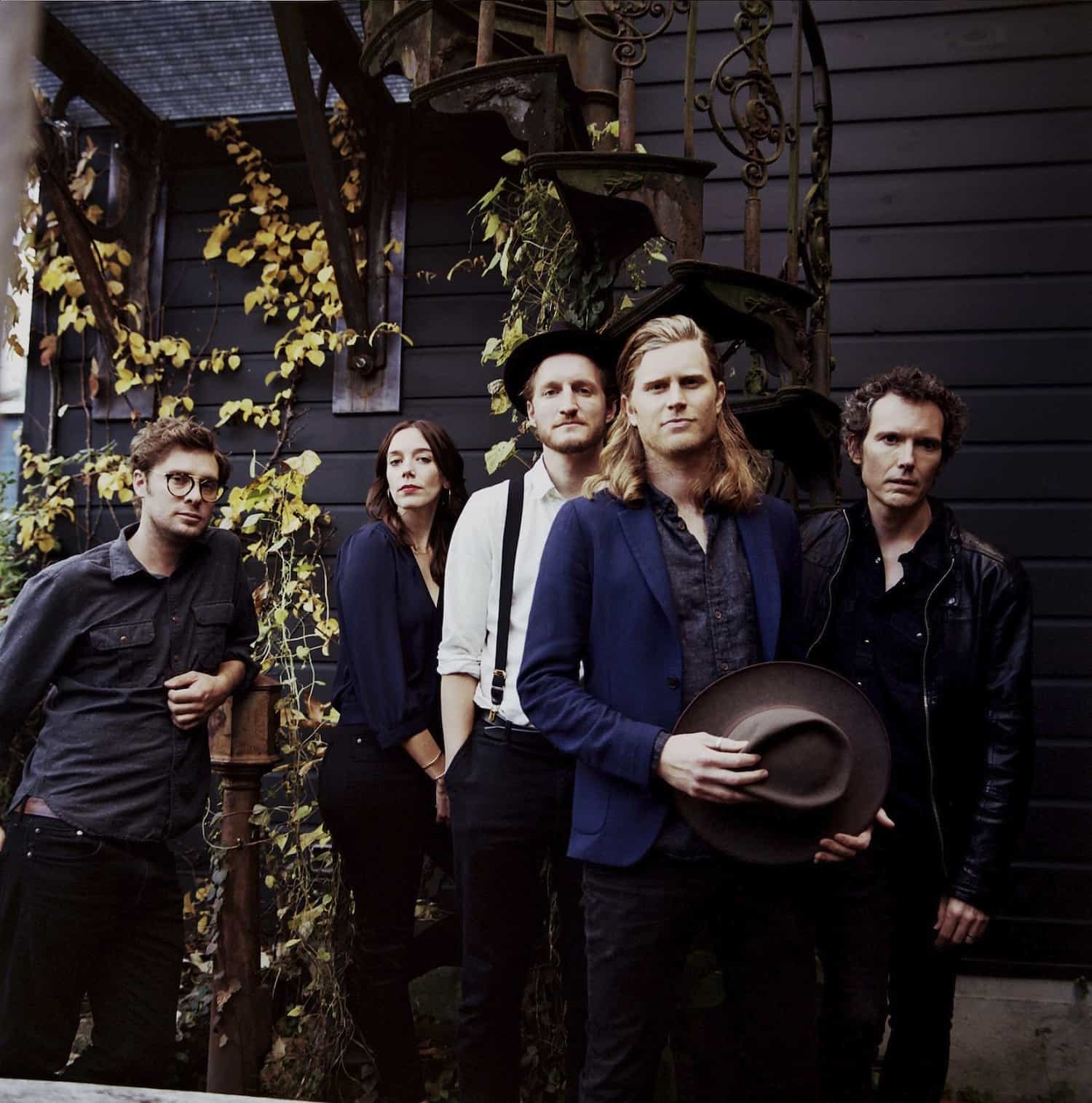
When I saw you play in New York City last year, you shared that story about “Charlie Boy.” You're right, it really does help you feel closer to the music, whether or not you've done your research.
Schultz: Yeah, I think it made me appreciate doing that, if you do it the right way. I go to too many concerts where the performer is like, the only reason you like the song is because the story had to be good. I just want it to be icing on the cake; “Oh, I didn’t know that about that song; that gives it some more depth to me.” I wanted the song to stand on their own and I was worried that would be a crutch, but I’ve enjoyed it, especially with something like that in these times, specifically “Charlie Boy.” We opened for U2, and I think that really taught me that the way I’ve seen a lot of frontmen and women tell stories about their songs or in a way, philosophize on stage, and I think what I realized is Bono is really good at telling a story, but also not alienating his audience while he’s doing that – not talking down to them, not preaching to them.
I think the opportunity with “Charlie Boy” was there to say, whether you’re on the right or the left or liberal or conservative, I think we need to start recognizing, in that case, that words of our leaders really do matter. And here’s an example from me – not to go into depth too much, but I had a friend who specialized in basically politics and how do you change people’s minds. And he said to me, “You don’t change people’s minds with facts and numbers and statistics, you change people’s minds through stories.” So I think songwriting can be the best vehicle for cracking the door open just a little bit in someone’s mind to being open to something. And then maybe a year later they change their mind – but you’re not going to beat them into submission and make them feel different, or bully them, so I think music is that amazing tool of protest, and it’s a little more subtle way that tends to grab people or root in them somehow and be more substantial than someone just yelling at you that you’re an idiot for believing in what you believe in.
I love how you've been able to use your music and transform it over time to fit what you want it to be at any time – that's really powerful. Moving on, I admire the musical risks and especially the quiet moments in III. How, if at all, do you feel you grew musically in-between the sessions for Cleopatra and III? Musically, how do these two albums distinguish themselves for you?
Schultz: I think it’s hard to say. I mean, I don’t know if there was a conscious effort to do something different. I think we were in a different place for each album, and had different interests. I think a big part of album three is the piano. I think what Jared did with the piano and the ideas he had, I think they really showcased… So much of what makes the band special is what Jared does on that piano on a regular basis. And so, remembering that when we first started playing music together, he didn’t play piano at all – he didn’t know how to play, and he’s taught himself over the last 14 years – so in a way, the evolution was just more organic because he was playing more piano and getting more advanced, and ideas were flowing. I think that the album focuses on that, and then I think there’s a lot more willingness to accept that certain takes are really how you sound… You start to embrace that, instead of trying to do it perfectly, you’re trying to find a rendition of it or a performance of it that feels true to the vibe of the song, instead of trying to hit the perfect note. And I think you hear that in something like “My Cell.”
In the song “My Cell,” we recorded that and did an entire version of it in a day that was to a metronome. It just kind of seemed to lose all of its soul, so after we had finished and orchestrated the whole song, we threw it out and started over in the studio the next day, or that night, and just recorded it live. And I think you can hear that element of risk, or danger, or vulnerability there when you listen to that song in particular, where it just sounds like what it really sounded like. It’s not overly ornate, and I think that rawness is something that, from album one, we were trying to really get to. We still try to, but I think this album, for me, has a lot more examples of getting there in a real way, and not manufacturing it.
I think that rawness is something that, from album one, we were trying to really get to.
Let's go into that: Why do you feel like vulnerability is something you strive for?
Schultz: I’ll give you an analogy: I listen to long form interviews, you know – Joe Rogan or Howard Stern. I think the people you like the most are the people that aren’t putting up walls and confronting; they’re people that are being themselves, and that involves vulnerability. And when I hear someone sing, there’s a type of singing that I really love that has this, you’re seeing from a certain place. And then there’s this more Broadway style of singing that I really don’t like. It really feels safe, and it feels guarded. So I think that vulnerability within a singer, and within the writing, and even in the instruments – how “Donna” starts out – the engineer we were working with at the time thought it sounded objectively bad, and that’s what we liked about it! It sounds like a real creaky piano, because that’s the piano we work on. That’s how we make our songs, we use that actual piano so we flew it into the studio.
I think that vulnerability is exactly what sets every human being apart from one another. It’s sort of you, you, is those imperfections. So I think embracing that to a level, and looking at that and exploring it a little bit… I used to hate my voice, and I would impersonate everyone else. We would hear our song at the bar, and I would be like, “I wish I had this guy’s voice.” Eventually you have to kind of find who you are inside those imitations, and just discover that. I think I’m still trying to do that; and as a writer, you’re trying to find your voice as well. It’s this whole process, right? But if you’re not willing to be vulnerable, then I don’t even know if you have art. I think it’s just the perfect performance, or something – you know, a robot could do that.
I think that vulnerability is exactly what sets every human being apart from one another.
I think of a song like, “It Wasn't Easy to Be Happy for You” or “My Cell.” They just scream of this being the take you chose; that this is the song, and it is it is what it is!
Schultz: I think we’ve been around radio enough to understand that radio looks at things very simply, and if it doesn’t, for example, have a lot of drums on it or a lot of speed to it, it will never get played. I think some people write music to make it to the radio, and I think what we do is, we write music and sometimes we’re like, “Man, I could see that making it to the radio because it has these very superficial qualities to it,” but something like “It Wasn’t Easy to Be Happy for You,” you could dress it up and ruin the song by overdressing it, you know? By putting too many things on it. That song in particular, we thought about it like, we just love it the way it is – it sounds like we’re playing in a basement, and it reminded us of listening to Exile on Main Street, where The Rolling Stones are literally in a basement in the south of France, and it just sounds grimy in a very interesting way. Even the very last “yeah” on that song… If you listen really closely on like “It Wasn’t Easy to Be Happy for You,” the very last gang vocals “Yeah,” you’ll hear our bass player Byron hitting this crazy weird, shouty note that’s kind of wrong, but we loved it and we kept it in there.
I think it just made us feel like we were making the type of music that in 20 years, I would want to listen to myself, or play for my kids. I think it has to last in that way that has all these weird artifacts in it that have not mistakes, but these “beautiful accidents” that happen. All my favorite records growing up, they had these moments on them.
I don’t know if that song will ever be on a radio station, but for us it was one of our favorites. I think we’ve had this weird phenomenon where – we have songs like “Sleep on the Floor,” or “Flowers in Your Hair,” or “Slow It Down,” or “Dead Sea”… These songs were never on the radio, and they’re some of the biggest reactions and requested songs, and big moments live for us. I think seeing that in the flesh and being around people who just really want to hear those songs, that’s also allowed us to sort of trust ourselves to make those decisions. I think when you first start out, you worry that it’s never going to see the light of day because radio won’t play it. And then, if you’re lucky enough, like I feel like we’re lucky that people dive into the albums and they know them front to back – it gives you more freedom to not feel like you need to do anything you don’t want to do; you just kind of make it the way you make it, and let the chips fall where they may.
I think it just made us feel like we were making the type of music that in 20 years, I would want to listen to myself, or play for my kids.
Cleopatra and III are so intricate and well-thought through concepts. What is it about these grander conceptual pieces that excites you?
Schultz: They were both kind of retrofitted. I think I learned something on Cleopatra, which was that you could tell a story with the existing materials, but I didn’t feel like it was very well organized. And with III, I felt like I was watching a photo develop – when you’re standing in the darkroom, and then it emerges out of the ether. I felt like I was watching these three characters come out of it; it’s almost like phase two of getting creative with what you’ve already made.
So we had these songs and sort of this “album” done, and then phase two was, “I think there’s these three characters, and what if they were part of this family and what if they told this bigger story?” For me, it was an album that was really themed around a family and around addiction. That was the really most basic way to describe it; and I guess the love within that family, that makes any addiction within any family more painful. So it started there, and then I think we just felt like people really dove into the videos on Cleopatra, and we had an opportunity to tell a really vivid story if we were a little more organized this time around, and I think we set our sights really high with trying to make a whole album into a film, but we felt like we had the right director who had the right aesthetic to tell the story.
So I think it was a confluence of events – like, any time you can collaborate with someone – like me with Jer (Jeremiah Fraites), I think we’re both on our own one thing, but together it’s stronger and it’s more interesting, because it’s this collaboration. So I think making this music into a film with a real filmmaker who knows what he’s doing and did a great job… we couldn’t have done it on our own! He brought so much to the table as far as bringing it to life.
For me, the appeal of that is, it’s mostly about storytelling: I think that if it allows you to further the story and to tell the story more vividly, it’s an opportunity you’re just not taking advantage of or doing if you decide to just make a generic video where you’re playing your instruments and looking sad or something. I think we wanted to do something more, and so it was exciting! I think it’s also made people more aware of what we’re seeing about. Something like “Cleopatra,” I thought the song was such a story and people would just get it. And I was really surprised that people didn’t understand it, so I would sometimes intro it and say a little bit about the song. Because to me, the whole thing is one epic story about this woman whose heart has been broken, but she keeps going on: This tough woman. So it taught me a lot about wanting to tell that story more, so with this alcoholism and this family, to put it on screen and to have it that raw was exciting because you can’t make up your own meaning this time around; we’re going to tell you a little bit more about what this is about.
It sounds like you consider yourself as much a storyteller, as you do a musician – and for you, those two things are intertwined.
Schultz: I think it’s important. I didn’t want to just write songs – I always viewed good songs as part and parcel with telling some story, so it didn’t really seem worth doing if I couldn’t tell a story while writing a song. I think there’s different ways to do that; I’ll qualify it by saying that I think not every song has to be a specific story. When I listen to Kurt Cobain – who is a storyteller, but a much different kind of storyteller; he’s more of a real poet, and he was finding his word that just fit the moment so perfectly. And then you have Leonard Cohen, who’s doing a little bit of both; I think he’s telling really literal stories and then he’s also singing the most beautiful poetry – so I think seeing people like that, it felt a lot more deep. I remember seeing this quote about Bob Dylan, it was this famous beat poet. I don’t know why I’m blanking on his name, but he’s in the background of the “Subterranean Homesick Blues” video.
Anyway, he was saying that Bob Dylan wanted to bring substance to radio – to pop songs on the radio, and if he could do that, that would be the biggest accomplishment. And I always thought, I only knew music as that, because he had already done that to radio and to popular music. He did that – he even influenced The Beatles! – but everyone that followed was impacted by this idea that it should mean more than just this hollow or simple message; it could be deeper. It could have more to dive into. So I think those people really, especially Bob Dylan, he revolutionized it, to the point where now, when I first started writing music, that was already part of what was natural. But in the ‘50s, you could spend your whole career just writing about love and getting your heart broken, falling in love, getting your heart broken – every other song could be that, and I think the search for a good song idea got wider when some of these guys enhanced it.
Everyone that followed [Bob Dylan] was impacted by this idea that music should mean more than just this hollow or simple message.
Do you see The Lumineers continuing down this path of concept albums?
Schultz: I don’t know! We’re in the middle of our first official tour. It’s hard to think that far ahead – I don’t even know where I’m going to be after tomorrow. I think what it starts with is just having some good song ideas on voice memos, so I’m starting to do that and so is Jer for the next record. I think it’s a little psycho to try to do the same thing over and over. I don’t think I’d make another film about an album; that just seems like we did it; don’t try to repeat. So, I’ll try to take a note from some of my favorite comedians, it seems like they just have to start over after they’ve released their special: It’s time to go back to the drawing board.
I think we’d be happier and more inspired to keep searching for the next thing that we find interesting, but what that is I don’t know right now. We’re sort of in the middle of this first part of the chapter: The first leg of tour, of about a year and a half or two of touring. So I’m trying to live in the moment and be as present as I can!
To that end, you’ve talked to me about a couple of the songs from The Lumineers’ discography that were about family members. I understand that III was inspired in large part by family. Has family always been a big influence on your songwriting, and what was it about this particular thread in III that made it the right time to dive deep into these stories in song?
Schultz: Yeah, I mean the family is a disguise for mainly a specific person in my life that is part of my family – my extended family, someone that I’m tied in with closely. My dad is a psychologist, and he communicated a lot, and family has always been really important to me – I have a family now, I have a son. It’s always been pretty obvious to me, because I was interested in psychology, that part of how we turn out is the nurture – is the family and the care that you do or don’t get, and the habits you form and the imitations you have of your parents.
So for me, that’s been and will be forever fascinating, because people are people are so strangely interesting. You can make it up, but sometimes hearing real stories can be the most exciting thing for me, you know – just realizing that some of these things really happened. My dad’s family, for example, was really splintered apart by the eldest son serving and then dying in Vietnam. And my mom, both her parents died when she was pretty young separately, but she had to become almost a surrogate mother to her youngest brother. I think just knowing some of that and seeing their dynamics and how things have turned out for them, and hearing about my dad’s family… There was just a lot that I always found fascinating or interesting, and as a writer, you’re sort of like a vampire: You’re excited to learn about it, you’re also taking from that. I think by exploring it and writing about it, there’s this good that happens, but you are as a writer pretty strangely… I don’t know if “selfish” is the right word, but you’re sort of, that’s where you want to go – is some of the darker places, and learn about some of these nitty gritty details. I think at the end of the day it proves to be a positive, but it is kind of a strange thing to be a writer, and seek that out. So I don’t know if it’s like the most valiant thing, but I think if you are open and you’re also turning the focus to yourself at times, it feels fair. It’s like a comic who makes fun of everyone in the crowd and also makes fun of themselves.
And so for me, you know, there are a few songs… I can point to one in particular, “Long Way from Home.” My dad passed away, and it’s about him, but it’s also about me feeling like I failed and kind of ran away when he needed me most. And I think saying that out loud, I think it’s therapeutic and also, if people are going to know you, at least let them know some of the real you. It’s surprising, because a lot of people, once you do that, they’re more willing to do that as well.
If people are going to know you, at least let them know some of the real you.
Held on to hope like a noose, like a rope
God and medicine take no mercy on him
Poisoned his blood, and burned out his throat
Enough is enough, he’s a long way from home
Days of my youth wasted on a selfish fool
Who ran for the hills from the hand you were dealt
I flew far away, as far as I could go
Your time is running out
And I’m a long way from home
Laid up in bed, you were laid up in bed
Holding the pain like you’re holding your breath
I prayed you could sleep, sleep like a stone
You’re right next to me
But you’re a long way from home
Hospital gowns never fit like they should
We yelled at the nurse, didn’t do any good
More morphine, the last words you moaned
At last I was sure
That you weren’t far away from home
– “Long Way From Home,” The Lumineers
I think about just how personal your second album was. III is honest in a different way: You’re telling stories that are now always your stories anymore, but you’re looking into bigger themes, still from a personal no-holds-barred lens. That's not really a question, so much as it is an observation.
Schultz: I think part of what I felt was the challenge of even writing about a family member who is battling addiction, is not to make it a caricature, but to try to do justice to both sides of the story. Not to be too lenient, one way or the other. And so, something like “Leader of the Landslide,” I think, really paints a picture of the nature of being around an addict, and then what that person is experiencing. “Gloria,” the song opens with a guitar: That guitar is dominant, and that song is from the perspective of the child, basically the daughter to her mother, the mother being an alcoholic. And then when you hear the piano take over, that’s the mother’s side of the story, and so it keeps going back and forth.
Not that people would know that, but I think when you know, that it makes a lot more sense why what’s being said is being said, and I think that was the challenge: How do I not just say it from one perspective?! Because I think that’s why it’s so complicated. It’s much easier to talk about just your side of it, or explain it in a more one-sided or one-dimensional way, but to try to be like, if the addict heard this song, would they feel like I did them justice? But that I was still honest. I think that’s where the F-bombs come from in “Leader of the Landslide,” is like, really singing that and really feeling that anger, because you love the person. What a strange idea, right, that you’d be so upset or hurt by somebody – and it’s because you love them that it makes it that much harder. I thought that was an interesting part of addiction: Like in “Gloria,” it says, “my hand was tied to yours,” it’s like, that’s how you feel. You’re anchored to them.
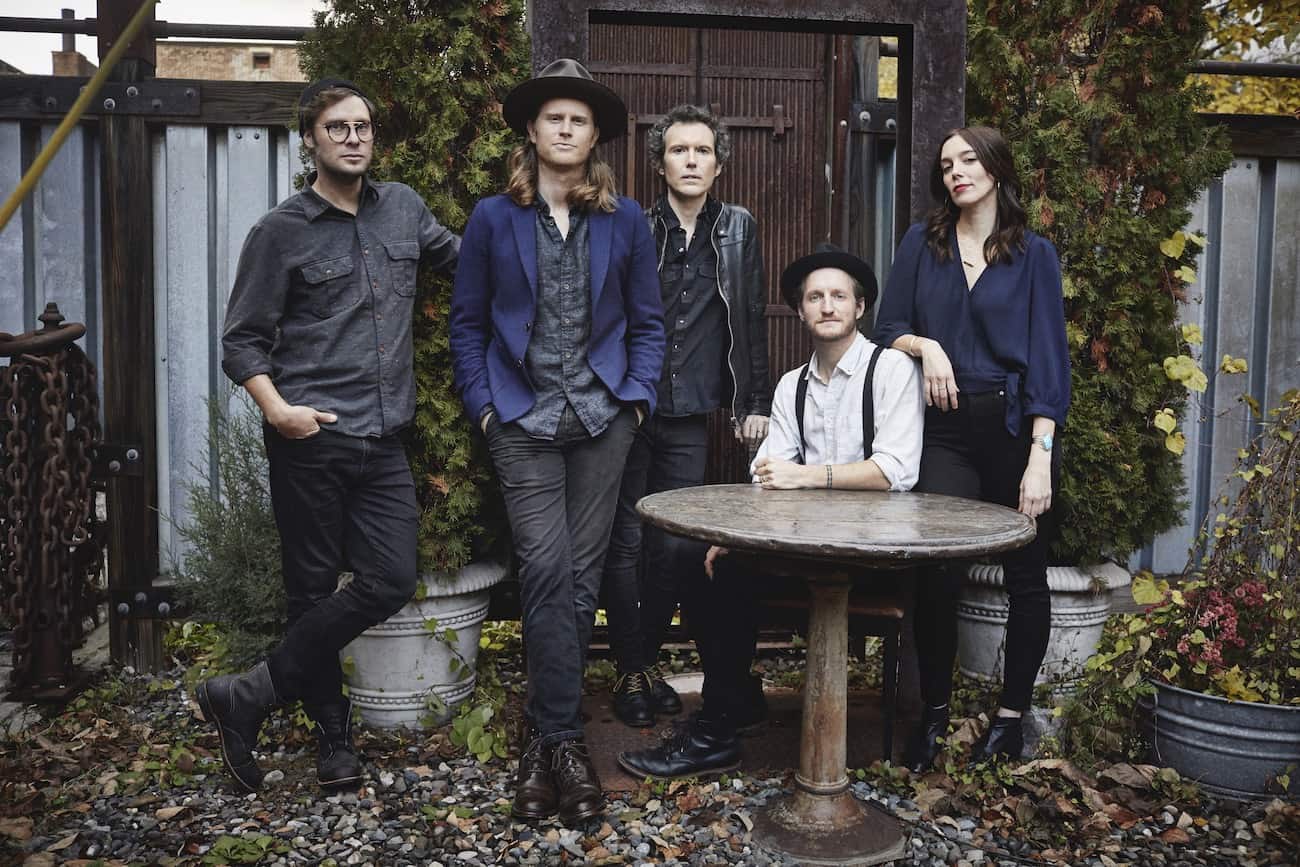
I have so much respect for you for taking that risk; it definitely pays off. Speaking of bringing people in, what songs from III are you finding people respond to the most live? I imagine that “My Cell” is a special moment.
Schultz: Yeah, “My Cell” has been unexpectedly a big moment. “Leader of the Landslide,” “Gloria” feels like it’s been out for years, in that it has this visceral quality I think people have responded in this amazing way to… But I would say “My Cell,” “Leader of the Landslide,” “Salt and the Sea,” “It Wasn’t Easy”… It’s just been overall really gratifying and surprising, compared to when we put out album two, how much faster people seem to understand. It sort of hits them in this way that feels more natural. Having now had two albums out and we’re now adding a third, it feels a lot more like people just get it. It took a while… With songs off of the second album, those have become more staples in the set, and now we’re adding less overall, so it’s easier for people to take the new stuff in and get excited by it. So I’ve been enjoying that… I think the vocal on “My Cell” is also different than a lot of the record, so I think people are a little caught off guard, because not everybody listens to the whole record before they go to a show on a new album cycle – so it’s been enjoyable to surprise people with that!
I recognize that it can be really difficult to write about that which is closest to home, and from a very personal standpoint I admire what you have made with the band. What were the hardest songs for you to write in III?
Schultz: Thanks man, I appreciate it. I think when we were singing “Leader of the Landslide” or “Gloria,” writing that… Those two were really hard. I was brought to tears, both writing those songs at times and singing them at the studio. I think just the subject matter felt heavy and personal, but it was also freeing… I’m not a religious person in an organized sense, but it almost felt like a cleansing or something.
So I think those two, even though they’re very different tones to them, I think they were both trying to – to me, there’s a hopefulness, even though it can be very dark, whether it’s the music or the delivery, I don’t know, but those were some of the hardest places to go to. Then when we perform them, they’re some of the more rewarding, because it’s raw, and when you’re singing about it you’re kind of thinking about it – thinking about what you’re singing about (it’s hard not to), and it brings something out of you that it’s not so much performance as it is just coming through – you’re channeling something. And I think that’s good! I feel lucky that as a songwriter, that’s something we’re called to do; we’re lucky that that’s our job, because people need to feel. It’s kind of an isolated environment today, and I think that’s why the live show is that much more important, and why it can kind of never die. It can’t be replaced by watching it at home, because coming together and being together, you can’t replace that or you can’t substitute that out with virtual reality.
People need to feel. It’s kind of an isolated environment today, and I think that’s why the live show is that much more important.
Would you say that these songs that were hard to write are also some of your most meaningful moments on the album?
Schultz: Yeah, I would say the challenging ones are meaningful to me for sure. I think that some of them just feel a lot more telling, you know my story, versus some of them are telling a compelling story that I find interesting. One like “Love Way from Home” or “Leader of the Landslide,” I think those tap into something that, they become the hardest to perform, but it’s almost like a gift, because like I said you’re not trying to summon some enthusiasm out of yourself that’s not going to be there unless you try; it’s just there, because you feel raw about it. So it’s sort of a blessing in disguise.
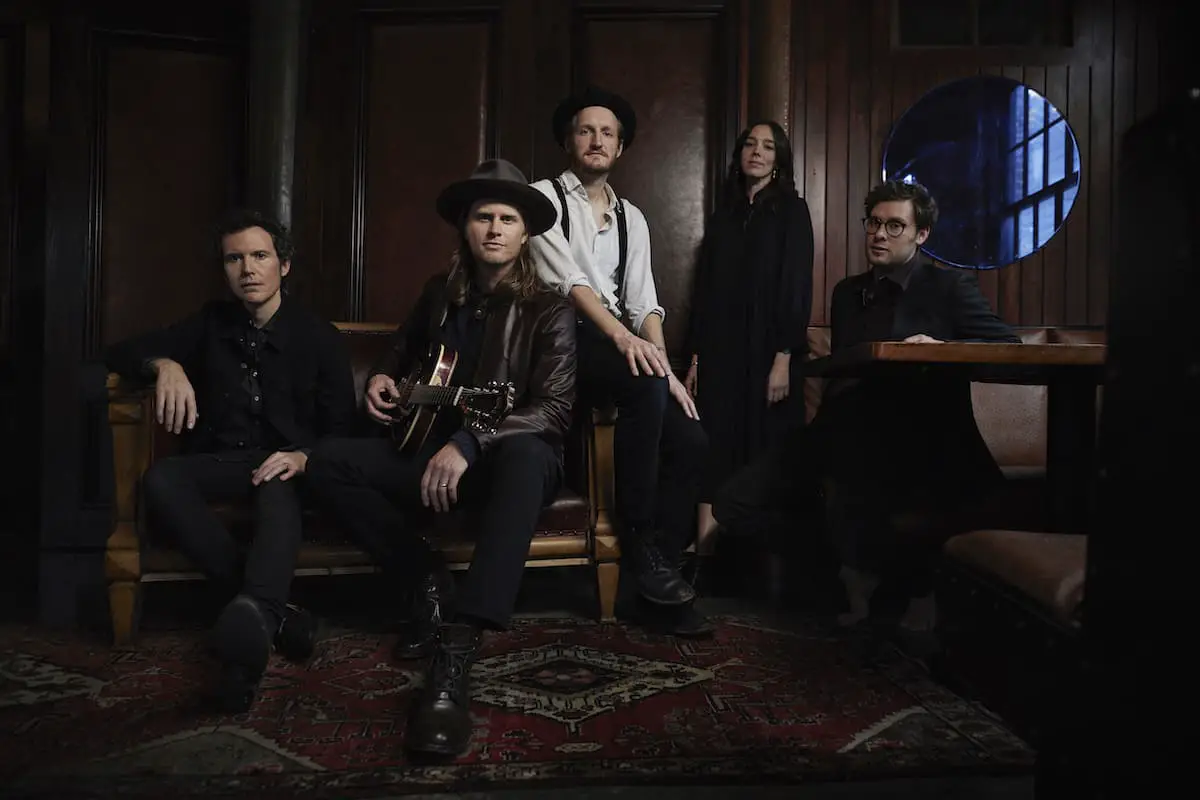
You jump from the section on “Donna,” straight to the grandson, and then back to the father. Why were these sections split this way, and not chronologically?
Schultz: Just because of the sequencing. We had sequenced the album and put the songs in the order we liked them, and then these ideas about this family came after. It’s not a sexy answer; it’s just we thought the album had a flow to it, and I didn’t want to break that up just to make it make sense time-wise. I’d seen enough movies, Memento probably being the most famous example, where they jump around in time, and I didn’t think that was a big obstacle – so I thought people could figure it out if we explained it right.
What are your biggest takeaways from III? What has this album taught you, and what do you think it stands to show others?
Schultz: Not that much time has passed, so I don’t have a lot of insight to an answer. I will say, what I’ve learned is that a lot more people deal with addiction than you’d ever imagine. And I would say that based on the immediate reaction and the reaction since from meeting people on the street, and at meet n’ greets, and fans at shows. It’s almost like a confessional album, that’s met with people confessing to you some inner feeling that they didn’t really feel permission to feel, or like there was an audience for. But if you put yourself out there for a moment, it’s amazing to realize that addiction is very much a taboo. And it doesn’t need to be, in the way it is. I think, just not necessarily having an answer, but saying I think it’s important that we acknowledge it among each other and talk about it, I think that’s a first step, for me, of the healing – and not causing someone to carry around secrets needlessly, when the burden of what they’re going through is already heavy enough.
I'd be remiss if we didn't talk about “Democracy.” I understand why it's not on the album as a part of this story, but I also think about how in “Jimmy Sparks” you sing, “It’s us or them.” At the very end, we have this coda with songs that don’t necessarily fit into the trilogy. “Democracy” talks all about the struggles that we're having right now, and I’d just love to hear a little bit about your take on this, and where this song came from personally.
Schultz: It’s a Leonard Cohen song, so it came from growing up listening to this album, The Future. It’s one of my favorite albums and one of my favorite songs off there, and so it just came from loving that song and then being invited to perform it. His son was throwing a memorial show for him, and he invited us, and we were honored – so we said yes, and that was the song we ended up playing. It was written, I believe, in the late ‘80s, early ‘90s, but it’s oddly super appropriate now, and I think that shows the power of his writing. I originally wanted to put it on the album, but it kind of got squeezed out because of this family that emerged. It didn’t really fit, but I was still really proud of the song, so I wanted it to be on the record in some form.
Finishing off, I know you're going to be touring the States with Mt. Joy (one of my favorite acts) very soon, but I’d like to end by asking who you’re listening to, and who we should have on our radar?
Schultz: I really like this guy named Daniel Rodriguez. He used to be in a band called Elephant Revival.I think they’ve disbanded, but he’s doing his own thing and he has an album coming out, and he has this really beautiful EP. I’ve been listening to that really constantly.
I would also say Gregory Alan Isakov. I toured with him years ago, and I’m just a huge fan. His most recent record, I just saw, got nominated for a Grammy for folk album, and it’s this amazing, amazing album. It doesn’t surprise me that it was nominated; it’s this awesome work, and I’m really, really happy for him. So I would say those two are artists that I’ve been listening to a lot lately.
Oh, and Big Thief! I really love them. I’ve been listening to this band Big Thief a ton; they’re amazing. Just unbelievable songwriting, and they have their own sound and universe. When you hear it, you immediately know you’re in Big Thief’s world.
— — — —
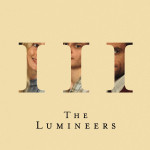
Connect to The Lumineers on
Facebook, Twitter, Instagram
Discover new music on Atwood Magazine
? © Danny Clinch
III
an album by The Lumineers
Watch III: The Film
:: The Lumineers Tour ::
* with Mt. Joy
Feb 1 – Asheville, NC – U.S. Cellular Center
Feb 4 – Columbus, OH – Schottenstein Arena*
Feb 5 – St. Louis, MO – Enterprise Center*
Feb 7 – Detroit, MI – Little Caesars Arena*
Feb 8 – Cleveland, OH – Rocket Mortgage FieldHouse*
Feb 11 – Grand Rapids, MI – Van Andel Arena*
Feb 13 – Brooklyn, NY – Barclays Center*
Feb 16 – Charlottesville, VA – John Paul Jones Arena*
Feb 18 – Indianapolis, IN – Bankers Life Fieldhouse
Feb 19 – Nashville, TN – Bridgestone Arena*
Feb 22 – Chicago, IL – Allstate Arena
Feb 25 – Pittsburgh, PA – PPG Paint Arena
Feb 26 – Buffalo, NY – Key Bank Center*
Feb 28 – Washington DC – Capital One Arena
Feb 29 – Uncasville, CT – Mohegan Sun Arena*
Mar 4 – Toronto, ON – Scotiabank Arena*
Mar 7 – Ottawa, ON – Canadian Tire Centre*
May 15 – Woodlands, TX – Cynthia Woods Mitchell Pavilion
May 16 – Dallas, TX – Dos Equis Pavilion
May 19 – Jacksonville, FL – Daily’s Place
May 20 — Jacksonville, FL — Daily’s Place
May 22 – Tampa, FL – MIDFLORIDA Credit Union Amphitheatre
May 23 – West Palm Beach, FL – Coral Sky Amphitheatre
May 27 – Virginia Beach, VA – Veterans United Amphitheater
May 29 – Charlotte, NC – PNC Music Pavilion
May 30 – Lakewood, GA – Cellaris Amphitheater at Lakewood
Jun 2 – Raleigh, NC – Credit Coast Union Music Park
Jun 5 – Camden, NJ – BB&T Pavilion
Jun 6 – Saratoga Springs, NY – Saratoga Performing Arts Center
June 9 — Gilford, NJ — Bank of New Hampshire Pavilion
Jun 10 – Gilford, NH – Bank of New Hampshire Pavilion
Jun 12 – Mansfield, MA – Xfinity Center
June 13 — Forest Hills, NY — Forest Hills Stadium
Aug 12 — Salt Lake City, UT — Maverik Center
Aug 14 — Portland, OR — Moda Center
Aug 15 — George, WA — Gorge Amphitheatre
Aug 18 — San Francisco, CA — Chase Center
Aug 21 — Los Angeles, CA — STAPLES Center
Aug 25 — San Diego, CA — Pechanga Arena San Diego
Aug 26 — Glendale, AZ — Gila River Arena
Aug 29 — Denver, CO — Coors Field
Sept 2 — Calgary, AB — Scotiabank Saddledome
Sept 4 — Edmonton, AB — Rogers Place
Sept 8 — Vancouver, BC — Rogers Arena
Sept 11 — Saskatoon, SK — SaskTel Centre
Sept 12 — Winnipeg, MB — Bell MTS Place
Sept 15 — Kansas City, MO — Sprint Center
Sept 18 — Austin, TX — Frank Erwin Center
tix & more info @ thelumineers.com
— —

